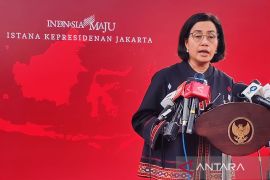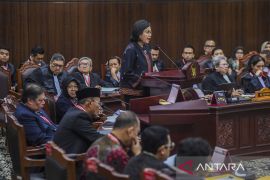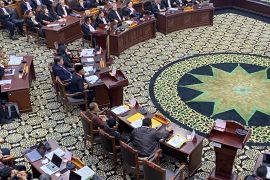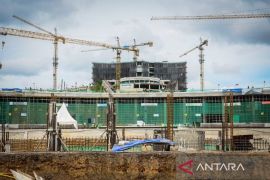"We can still achieve the 5.8 percent growth target if reallocation of subsidy is done correctly," Finance Minister Bambang Brodjonegoro said.Jakarta (ANTARA News) - Finance Minister Bambang Brodjonegoro said the country can achieve the 5.8 percent growth target set in the 2015 budget if a number of infrastructure development plans are realized.
"We can still achieve the 5.8 percent growth target if reallocation of subsidy is done correctly," he said here on Tuesday.
He said the recent decision of the government to adjust the subsidized fuel price had given enough room for fiscal management in the range of Rp110 trillion to Rp140 trillion.
The funds could be channeled into infrastructure development or social protection programs, he said.
"With the reallocation of significant funds for infrastructure and investment, the 5.8 percent growth target is likely to be met," he said.
The minister has given a signal to retain the economic growth target in the revised budget of 2015 at 5.8 percent, just as he would expect the rupiah exchange rate at Rp11,900 against the US dollar.
"The Rp11,900 exchange rate is not pessimistic but conservative because although there would be a positive sentiment and a better current account deficit later in 2015, normalization of monetary policy has yet to happen. We must be prepared if outflow occurs and the rate is affected," he said.
Regarding the Indonesia Crude Price, he said he would set a new expected price in the 2015 revised budget at between US$100 and US$105 per barrel which is lower than the assumption made in the 2014 budget which was US$105 per barrel.
"With regard to oil, I have asked for monitoring all forecasts. However, it would be better if we set the expected price at below US$104 per barrel or even below US$100. However, it is still too early to decide it now," he said.
With regard to the revised 2015 budget, the minister pledged to shift subsidy towards infrastructure development and social protection programs which are more productive as well as efficient in creating ample fiscal room.
"How much of it would be shifted is something we will see in the revised budget later. As for efficiency, we cannot just make cuts. But it is hoped that saving can be made in procurement of goods and non-infrastructure capital expenditures," he said.(*)
Editor: Heru Purwanto
Copyright © ANTARA 2014











